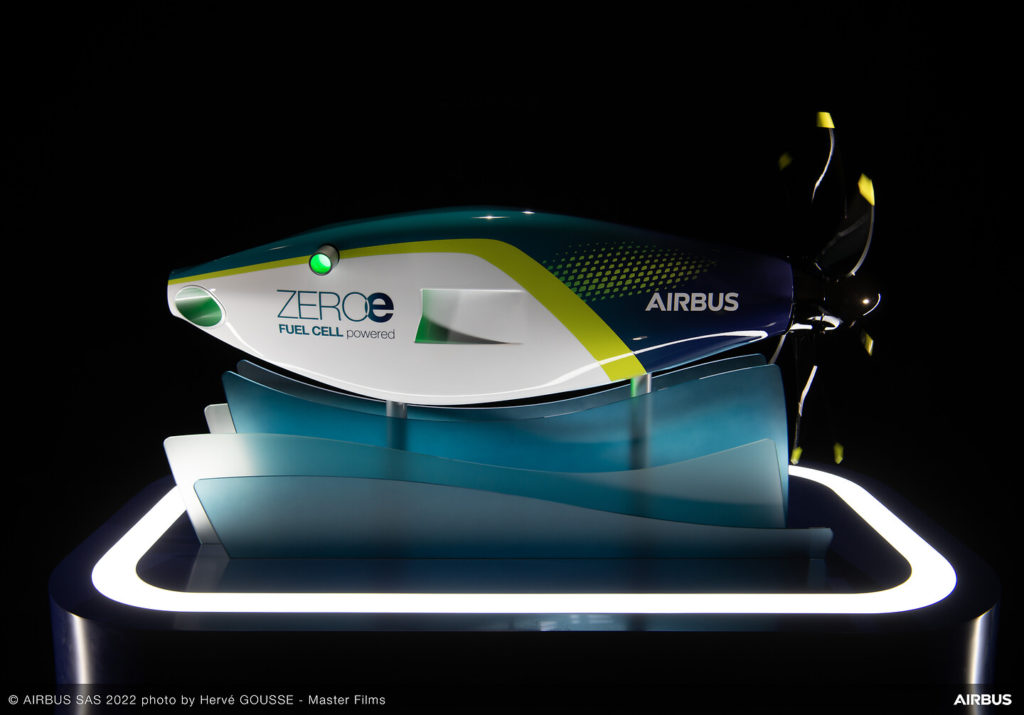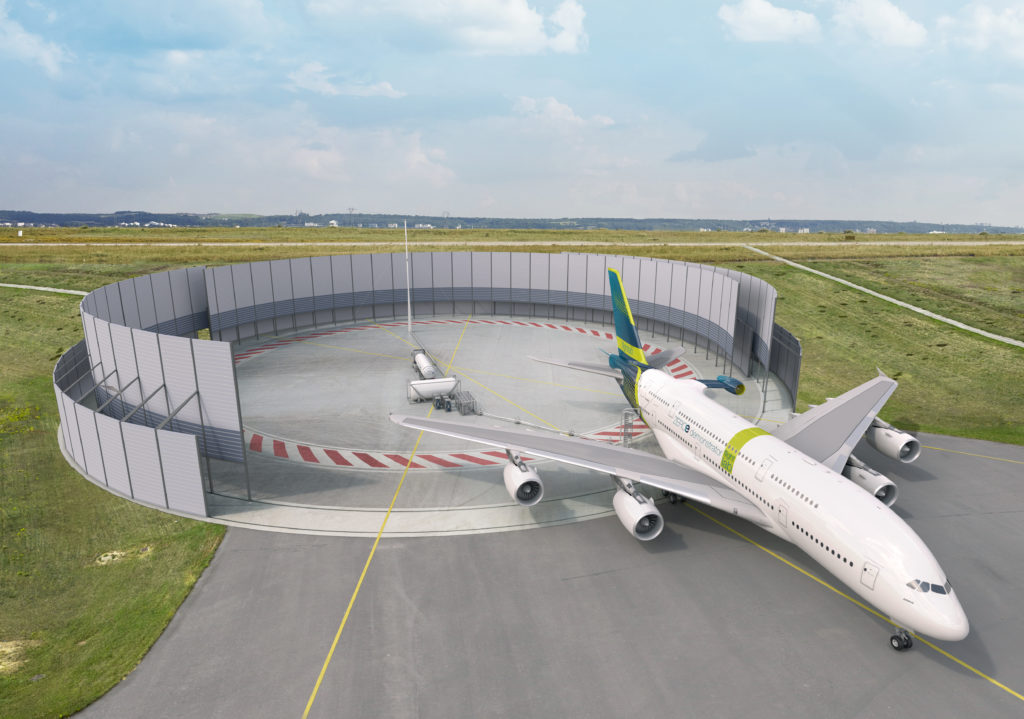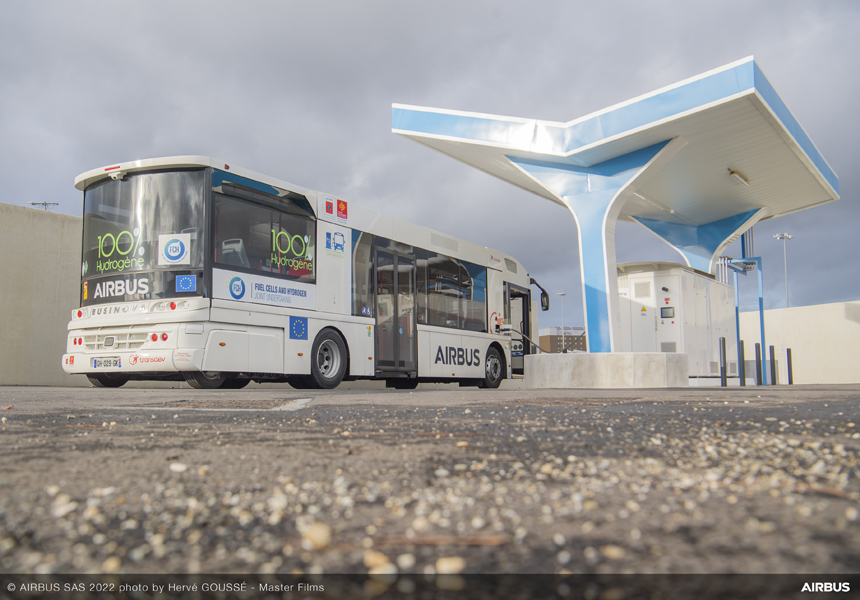In 2021, at the first Airbus Summit, the OEM declared that it would focus significant time and effort on Zero Emission aviation. At the time, they had shared three pathways to exploring how Hydrogen could power aviation. They also committed to seeing to it that their zero-emission aircraft would enter service by 2035.
Airbus reveals further updates at Airbus Summit 2022
Airbus has revealed that it is developing a hydrogen-powered fuel cell engine. The propulsion system is being considered as one of the potential solutions to equip its zero-emission aircraft that will enter service by 2035.

Airbus will start ground and flight testing this fuel cell engine architecture onboard its ZEROe demonstrator aircraft towards the middle of the decade. The A380 MSN1 flight test aircraft for new hydrogen technologies is currently being modified to carry liquid hydrogen tanks and their associated distribution systems.
Glenn Llewellyn, VP Zero-Emission Aircraft, Airbus, said,
Fuel cells are a potential solution to help us achieve our zero-emission ambition and we are focused on developing and testing this technology to understand if it is feasible and viable for a 2035 entry-into-service of a zero-emission aircraft.
He further added,
At scale, and if the technology targets were achieved, fuel cell engines may be able to power a one hundred passenger aircraft with a range of approximately 1,000 nautical miles. By continuing to invest in this technology we are giving ourselves additional options that will inform our decisions on the architecture of our future ZEROe aircraft, the development of which we intend to launch in the 2027-2028 timeframe.
Airbus identified hydrogen as one of the most promising alternatives to power a zero-emission aircraft because it emits no carbon dioxide when generated from renewable energy, with water being its most significant by-product.
There are two ways hydrogen can be used as a power source for aircraft propulsion. First via hydrogen combustion in a gas turbine and second, by using fuel cells to convert hydrogen into electricity in order to power a propeller engine. A hydrogen gas turbine can also be coupled with fuel cells instead of batteries in a hybrid-electric architecture.
Hydrogen fuel cells, especially when stacked together, increase their power output, allowing scalability. In addition, an engine powered by hydrogen fuel cells produces zero NOx emissions or contrails, offering additional decarbonisation benefits.
Airbus has been exploring the possibilities of fuel-cell propulsion systems for aviation for some time. In October 2020, Airbus created Aerostack, a joint venture with ElringKlinger, a company with over 20 years of experience as both a fuel cell systems and component supplier. In December 2020, Airbus presented its pod concept, which included six removable fuel cell propeller propulsion systems.
Airbus and ArianeGroup to pioneer liquid hydrogen technology
Airbus and ArianeGroup, a joint venture equally owned by Airbus and Safran, and a world leader in space propulsion technologies, will work together to build the first liquid hydrogen refuelling facility for ZEROe aircraft at Toulouse, Blagnac airport. The station will be operational in 2025.

ArianeGroup will design, produce and support the operations of the liquid hydrogen fuelling system necessary for Airbus’ ZEROe demonstrator as it embarks on its ground and flight test campaign – due to start in the middle of this decade.
André-Hubert Roussel, CEO of ArianeGroup, said on the occassion,
Airbus’ choice of us as partner is a vote of confidence, recognising half a century of expertise in liquid hydrogen for Ariane rocket propulsion. We are proud to be working with Airbus on these first steps towards liquid hydrogen-powered aircraft. Aviation and space are two pioneering industries. Uniting our expertise is our responsibility to tackle the challenges of tomorrow. ArianeGroup, with its unique skills and know-how in the storage, testing, and use of liquid hydrogen, enables new industrial sectors in Europe to accelerate their energy transition.
Sabine Klauke, Chief Technical Officer, Airbus, added,
Many of the technologies required for a zero-emission aircraft are already available in other industries, and liquid hydrogen handling is no exception. Preparing for the entry into service of a zero-emission aircraft in 2035 means that we need to mature all of the required technologies in parallel. By partnering with ArianeGroup, we will leverage well-known hydrogen expertise and other relevant space technologies in the pursuit of this goal.
ArianeGroup is the prime contractor of Ariane launch vehicles, which have been propelled by liquid hydrogen for more than 40 years.
Airbus teams up to advance green hydrogen availability at airports.
Airbus also signed a partnership agreement with HyPort, a joint venture between ENGIE Solutions and the Regional Agency for Energy and Climate in Occitanie (AREC), a leader in the development of green hydrogen in France, to support the development of one of the world’s first low carbon hydrogen production and distribution stations at an airport.

The construction of the hydrogen station at Toulouse-Blagnac airport was completed earlier this year, and the production, storage, and distribution systems are currently undergoing final testing. The station, slated to enter into service in early 2023, will have the capacity to produce around 400 kg of hydrogen per day, providing the possibility to power some 50 ground transportation vehicles.
Airbus is working with HyPort to put in place a deployment plan for expanding these hydrogen fuelled ground operations, adapting production and distribution means and infrastructure capacity to cope with the expected increase in hydrogen demand in the coming years. The partnership will also enable a blueprint to be prepared outlining requirements and providing guidance on the safety of operations, regulatory compliance, social acceptance, and the financial investment necessary for the widespread use of hydrogen at airports.
In 2020, Airbus launched the “Hydrogen Hub at Airports” to help airports identify infrastructure requirements for future hydrogen aircraft and low-carbon airport operations across the entire value chain. Over the past two years, Airbus has signed partnerships with various airport authorities, airlines and energy providers in Europe, Asia-Pacific and North America.
Liked our articles and our efforts? Please pay an amount you are comfortable with; an amount you believe is the fair price for the content you have consumed. Please enter an amount in the box below and click on the button to pay; you can use Netbanking, Debit/Credit Cards, UPI, QR codes, or any Wallet to pay. Every contribution helps cover the cost of the content generated for your benefit.
(Important: to receive confirmation and details of your transaction, please enter a valid email address in the pop-up form that will appear after you click the ‘Pay Now’ button. For international transactions, use Paypal to process the transaction.)
We are not putting our articles behind any paywall where you are asked to pay before you read an article. We are asking you to pay after you have read the article if you are satisfied with the quality and our efforts.


The author of the article (not this blog writer) clearly does not understand science. Hydrogen is liquid at -434F/ -259C. How do you get that on a plane and keep it at that temperature. They also mention liquid hydrogen is used as rocket fuel – not true – they use Hydrazine which is highly reactive and toxic. Who wants to ride on a plane full of rocket fuel?!! The fuel cells are viable but are almost certainly powered by liquid methanol from which hydrogen is extracted, and not liquid hydrogen. Note that using methanol/methane for hydrogen creates CO2 – so what is the point?
I’m all for hydrogen fuel cell technology but every time I see a story about airplane engines using hydrogen I can’t help but think of the Hindenberg issue with flammability. I’m sure I don’t know enough to really form a good opinion of this but it comes to mind.